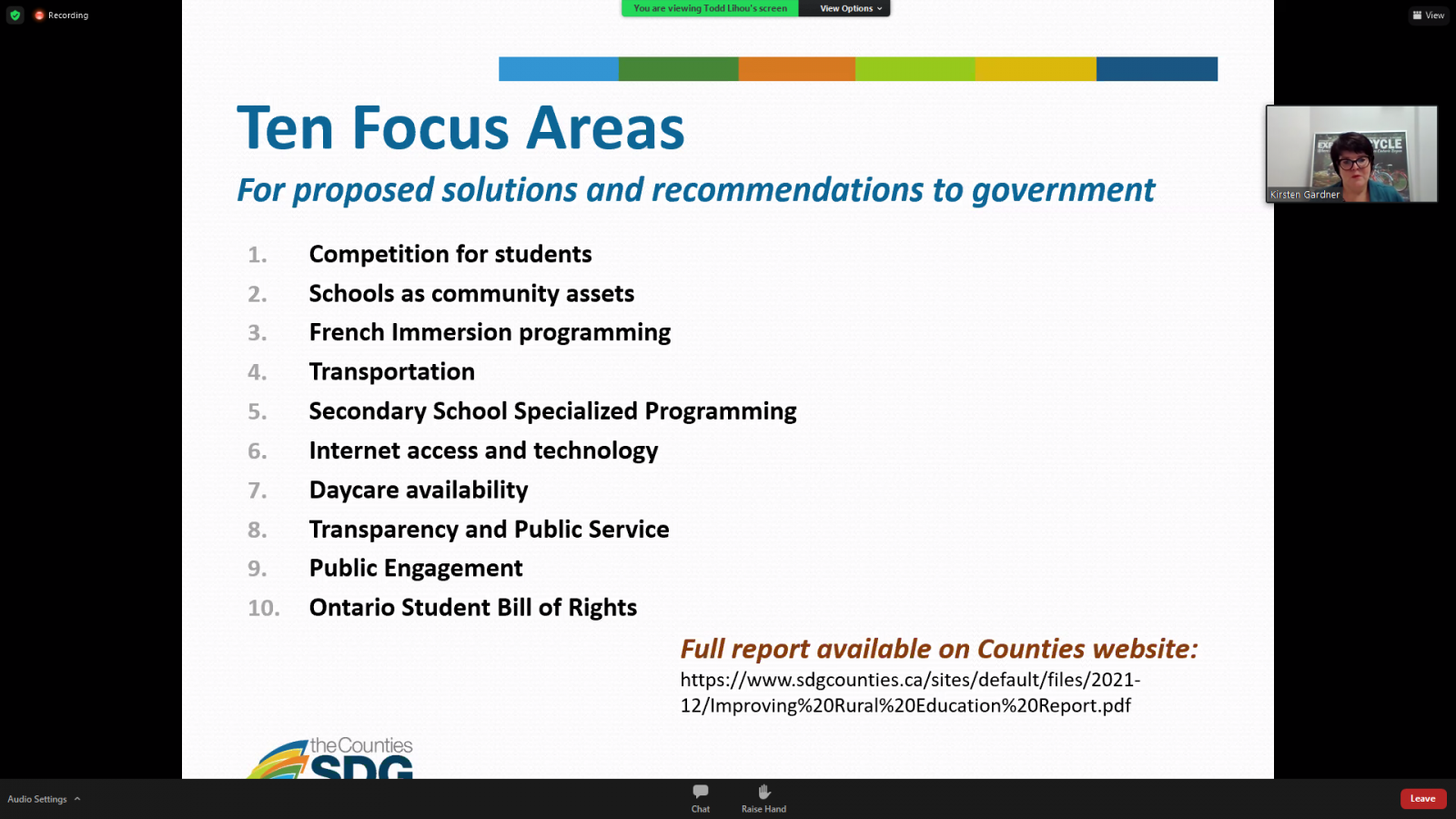CORNWALL, Ontario – On Thursday, Feb. 3, the United Counties of SD&G hosted a symposium on rural education live on YouTube and Zoom.
The symposium was a follow-up to a report commissioned by the United Counties last year on rural education. That report identified a series of issues with rural education in the region including multiple school boards competing for the same pool of students, administrators viewing education as a business rather than a public service, and inconsistencies in program delivery among other things.
United Counties councillors Kirsten Gardener and Stephanie Jaworski presented some of the local issues that rural education faces to the symposium.
They gave examples from local rural communities, such as the Township of North Glengarry. The largest community in North Glengarry is Alexandria, which has five schools, all of which are less than half of their capacity. The town of Alexandria has an estimated 980 students, but 2,551 student spaces.
“All of our schools regardless of board, are connected,” Jaworski explained.
The Upper Canada District School Board (UCDSB) high school in Alexandria, Glengarry District, was the largest school by both capacity and enrollment, but during the Pupil Accommodation Review (PAR) process in 2016 it was selected for closure.
Jaworski also pointed out, that there are approximately 300 students in North Glengarry who do not go to North Glengarry schools, but instead go to schools nearly an hour outside the community.
Jaworski explained that ministry per-pupil funding for school boards also is not entirely equitable with some school boards getting more funding for students based on different programming they might offer, such as French Immersion.
Schools providing programming like French Immersion can present challenges for rural schools and the communities they serve. One such example of this is in the community of South Stormont,
In South Stormont, one school, Longue Sault Public (LPS) in the village of Long Sault, provides French Immersion, while another UCDSB school, Rothwell-Osnabruck (RO) in the village of Ingleside, does not.
RO saw its enrollment decline, while LPS saw its enrollment grow.
“When one school is dedicated French Immersion, and another school is not, it will have a measurable and predictable impact,” Jaworski said.
Doug Reycraft, former Mayor of South Middlesex, ON, presented to the symposium on the importance of rural schools in their communities. He explained how rural schools serve as more than just places for education, but are often anchors in their communities serving as multi-use meeting places.
“When the only school in a small town is closed, families would look elsewhere for a home to put down their roots,” Reycraft noted that this does not happen in neighbourhoods in larger cities.
The keynote speaker of the symposium was Paul Bennett, author and Director of the Schoolhouse Institute and Adjunct Professor of Education at Dalhousie University.
More than 10 years ago, Bennett became impassioned about the cause of rural education after attending a meeting about the closure of a school in a small community in his native NS.
Bennett recounted his experiences since then and tricks and tactics he has learned when dealing with school boards who want to close rural community schools.
In 2016, the UCDSB selected a number of schools to close as a part of their PAR process. Community campaigning and lobbying with the school board lead to much fewer schools being closed, but Bennett warned that this was merely a reprieve and that he has often seen schools closed in second PARs a few years after they were spared.
Bennett explained that the PAR process “is about closing schools, not renewing communities.”
He advised that schools should be made the focus of the economic development of rural communities, and that communities should engage with and take a direct hand in the development of their local schools.
“You have so much going for you when you realize you need to engage with the schools with or without the school board,” he said.
The full symposium is viewable on the United Counties of SD&G YouTube Channel.




